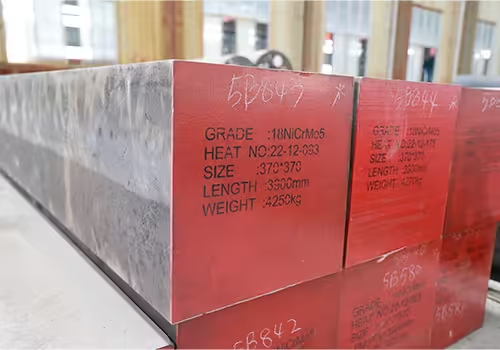
Is Billet Aluminum Stronger Than Steel? 3 Myths Busted
Table of Contents
Introduction

In the world of material science, the debate between billet aluminum and steel has sparked considerable discussion. The question “Is billet aluminum stronger than steel?” often arises, particularly when comparing the durability, strength, and performance of these two metals in various applications. While both materials have their advantages, understanding their differences is crucial when selecting the right material for your needs.
In this blog, we will break down the common myths surrounding billet aluminum and steel, explore their key properties, and provide insights on how each material performs in real-world applications. By the end of this article, you’ll have a clear understanding of whether billet aluminum is truly stronger than steel.
Myth 1: Billet Aluminum is Stronger Than Steel in All Situations
One of the most prevalent myths surrounding billet aluminum is the belief that it is stronger than steel in every conceivable scenario. This misconception has been perpetuated by its promotion in high-performance industries, such as automotive and aerospace. Billet aluminum is often hailed as a premium material due to its superior appearance, machinability, and lightweight properties. However, when it comes to pure strength, particularly under heavy load conditions, billet aluminum is not always the superior material.
Steel, particularly high-carbon steel and specialized alloys such as stainless steel, is well-known for its significantly higher strength compared to billet aluminum. This is due to the superior tensile strength of steel, which enables it to handle much greater stress and force. On the other hand, billet aluminum, while lightweight and versatile, cannot compete with steel in high-stress or high-impact environments. The high tensile strength of steel makes it the material of choice for heavy-duty applications where strength and durability are paramount.
To provide a clearer picture, let’s look at a quick comparison of the tensile strengths of these materials:
| Material | Tensile Strength (MPa) |
|---|---|
| Billet Aluminum | 270–700 MPa |
| Carbon Steel (Grade 1045) | 600–850 MPa |
| Stainless Steel (Grade 304) | 520–750 MPa |
As shown in the table, steel consistently outperforms billet aluminum when it comes to tensile strength. This is why, for applications involving significant stress, heavy loads, or extreme conditions, steel is often the material of choice. Therefore, the myth that billet aluminum is universally stronger than steel simply doesn’t hold up in real-world applications.
Myth 2: Billet Aluminum is Always the Best Choice for Strength-to-Weight Ratio

A second widespread myth about billet aluminum is the assumption that it always offers a superior strength-to-weight ratio compared to steel. While it is undeniable that aluminum is generally much lighter than steel, the strength-to-weight ratio is not always better with aluminum in every case. This brings up the common question: is billet aluminum stronger than steel when weight savings are prioritized? In fact, certain high-strength steels are specifically engineered to optimize both weight and strength, sometimes competing closely with or even surpassing the performance of billet aluminum.
For example, in the automotive and aerospace industries, advanced high-strength steels (AHSS) are designed to offer excellent strength-to-weight ratios. These steel alloys, which are typically stronger and more durable than billet aluminum, maintain a reasonable weight that can match or exceed the performance of aluminum in various applications. So when evaluating the question is billet aluminum stronger than steel, it becomes clear that aluminum doesn’t always hold the advantage in every scenario.
The weight savings offered by aluminum may not always be as significant when compared to the strength and durability of these specialized steel alloys. When considering the strength-to-weight ratio, it is essential to evaluate the specific types of materials being compared. Not all steels are created equal, and in some cases, a high-strength, low-alloy steel may outperform standard billet aluminum in terms of weight and strength. Therefore, when asking is billet aluminum stronger than steel in the context of strength-to-weight ratio, the answer depends on the specific alloy and application in question.
Myth 3: Billet Aluminum Is More Durable Than Steel
Another commonly held myth is that billet aluminum is inherently more durable than steel. While billet aluminum is undoubtedly corrosion-resistant, making it an ideal choice for applications exposed to harsh environmental conditions (like marine and outdoor equipment), it does not necessarily surpass steel in terms of overall durability. That leads to a critical consideration: is billet aluminum stronger than steel when durability is factored in?
Steel, particularly in its hardened or alloyed forms, is generally more durable than billet aluminum. This is because steel has a superior ability to resist wear and tear. In environments where parts are exposed to high levels of friction, abrasions, or impacts, steel’s durability is often much greater than that of billet aluminum. In this regard, when asking is billet aluminum stronger than steel under intense use or mechanical stress, the answer often favors steel.
In addition, steel’s high fatigue resistance allows it to endure repeated cycles of stress without failing, making it more suitable for high-stress environments, such as heavy machinery or structural applications. When comparing the durability of these two materials, it is essential to understand that strength and durability are not the same thing. While billet aluminum may excel in resisting corrosion, steel tends to outperform it in wear resistance and fatigue strength.
Steel components, especially those made from hardened or alloyed grades, are much more likely to withstand heavy usage over time without suffering significant degradation. Furthermore, in terms of fatigue resistance—essential for components subjected to repeated cycles of stress—steel is generally more reliable. Steel can endure many more cycles of stress before failure, making it the preferred material for components that experience continuous loading, such as automotive suspension systems, construction equipment, and industrial machinery. All these factors show that the answer to is billet aluminum stronger than steel really depends on which form of strength or durability is most critical for the job.
Key Differences Between Billet Aluminum and Steel
To better understand the practical differences between billet aluminum and steel, here’s a comparison of their key properties:
| Property | Billet Aluminum | Steel (Carbon Steel & Stainless Steel) |
|---|---|---|
| Density | 2.7 g/cm³ | 7.8 g/cm³ |
| Tensile Strength | 270–700 MPa | 600–850 MPa (Carbon Steel), 520–750 MPa (Stainless Steel) |
| Corrosion Resistance | Excellent (natural oxide layer) | Varies (good in stainless steel) |
| Wear Resistance | Moderate | High (particularly in hardened steel) |
| Fatigue Resistance | Moderate | High (better in most steels) |
| Cost | Generally more expensive | Can be more affordable (depends on grade) |
As shown in the table, while billet aluminum is lightweight and offers good corrosion resistance, steel excels in terms of strength, wear resistance, and fatigue resistance. The best material for your application depends on which of these properties are most important.
Applications of Billet Aluminum vs. Steel

The selection between billet aluminum and steel largely depends on the specific needs of an application. A common question during material selection is: is billet aluminum stronger than steel? The answer varies depending on the intended use, which is why it’s essential to evaluate each material based on performance demands. Let’s look at some of the common uses for both materials:
Billet Aluminum Applications:
- Aerospace components (lightweight and corrosion-resistant)
In aerospace applications, weight reduction is crucial. While aluminum is favored for this reason, engineers still ask: is billet aluminum stronger than steel in critical stress-bearing parts? Typically, steel is used where higher strength is needed. - Custom automotive parts (precision machining and design flexibility)
Many high-performance automotive parts are crafted from billet aluminum for their machinability and sleek design. However, when evaluating structural safety, manufacturers still assess: is billet aluminum stronger than steel in crash scenarios or long-term fatigue? - Marine applications (resistant to corrosion in saltwater environments)
Billet aluminum’s corrosion resistance makes it ideal for marine settings. Still, when parts are exposed to physical stress, designers must consider: is billet aluminum stronger than steel in harsh, dynamic marine conditions? - Decorative or performance parts (where weight savings are crucial)
Billet aluminum is perfect for non-load-bearing or performance-enhancing parts due to its lightweight properties. But the recurring question remains: is billet aluminum stronger than steel in cases where appearance and function overlap?
Steel Applications:
- Construction materials (structural beams, rebar, etc.)
In the construction industry, strength is non-negotiable. Asking is billet aluminum stronger than steel is straightforward here—steel clearly dominates in load-bearing capacity and structural integrity. - Industrial machinery and tools (high wear resistance and strength)
Steel’s wear resistance and toughness make it indispensable for heavy-duty tools and machinery. Though aluminum parts are sometimes used for ergonomic benefits, engineers still analyze whether is billet aluminum stronger than steel under intense industrial stress. - Automotive frames and engine components (strength, durability)
Safety and durability demand the use of high-strength materials. While billet aluminum can reduce weight, the critical question persists: is billet aluminum stronger than steel for essential automotive structures? - Military and defense applications (strength and fatigue resistance)
In high-stakes environments like military operations, steel’s ability to withstand extreme pressure is unmatched. Though billet aluminum is used in specific components, the overarching concern always is: is billet aluminum stronger than steel in life-or-death situations?
As you can see, is billet aluminum stronger than steel is a question that frequently arises in material selection. Billet aluminum is often preferred for applications where weight savings and corrosion resistance are critical, while steel is chosen for scenarios where strength, durability, and resistance to wear are more important. Therefore, while billet aluminum excels in specialized uses, steel remains the top choice for high-stress, strength-critical applications. where weight savings and corrosion resistance are critical, while steel is chosen for applications where strength, durability, and resistance to wear are more important.
Conclusion
So, is billet aluminum stronger than steel? The answer is not a simple yes or no—it truly depends on the application. When comparing the two, it’s important to ask: is billet aluminum stronger than steel under conditions of high stress, fatigue, and long-term wear? In those scenarios, steel—especially high-strength alloys—clearly outperforms billet aluminum in tensile strength, fatigue resistance, and overall durability.
However, when evaluating materials for aerospace, marine, or automotive parts, another valid question is: is billet aluminum stronger than steel in terms of performance where weight and corrosion resistance matter most? In such environments, billet aluminum shines by offering significant advantages in weight reduction, resistance to corrosion, and ease of precision machining.
Ultimately, by thoroughly asking and understanding is billet aluminum stronger than steel, you can make a more informed and application-specific decision. The right material depends not on a blanket answer but on your project’s unique needs and environmental demands.
FAQ
Is billet aluminum stronger than steel for automotive parts?
In most cases, steel is stronger and more durable for automotive parts, particularly for structural components. However, billet aluminum is often used for lightweight, performance-oriented components where weight savings are a priority.
Does billet aluminum rust like steel?
No, billet aluminum is naturally resistant to rust due to its protective oxide layer. Steel, on the other hand, can rust unless it is coated or made from a corrosion-resistant alloy like stainless steel.
Can billet aluminum be used for heavy-duty machinery?
Billet aluminum is not typically used in heavy-duty machinery that requires high tensile strength or wear resistance. Steel is generally the better option for such applications due to its superior strength and durability.
Is billet aluminum more expensive than steel?
Yes, billet aluminum is generally more expensive than steel, particularly when it comes to custom machining and precision parts. Steel can be more cost-effective, especially for mass production.
What is the best material for marine applications?
Billet aluminum is often the preferred choice for marine applications due to its resistance to corrosion in saltwater environments. However, certain stainless steels are also used in marine environments for their strength and corrosion resistance.






